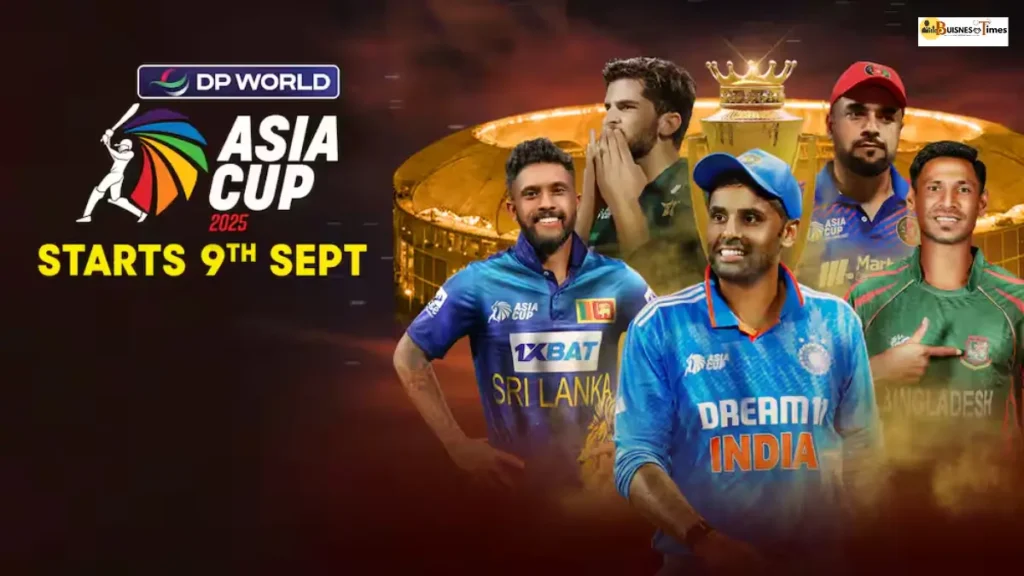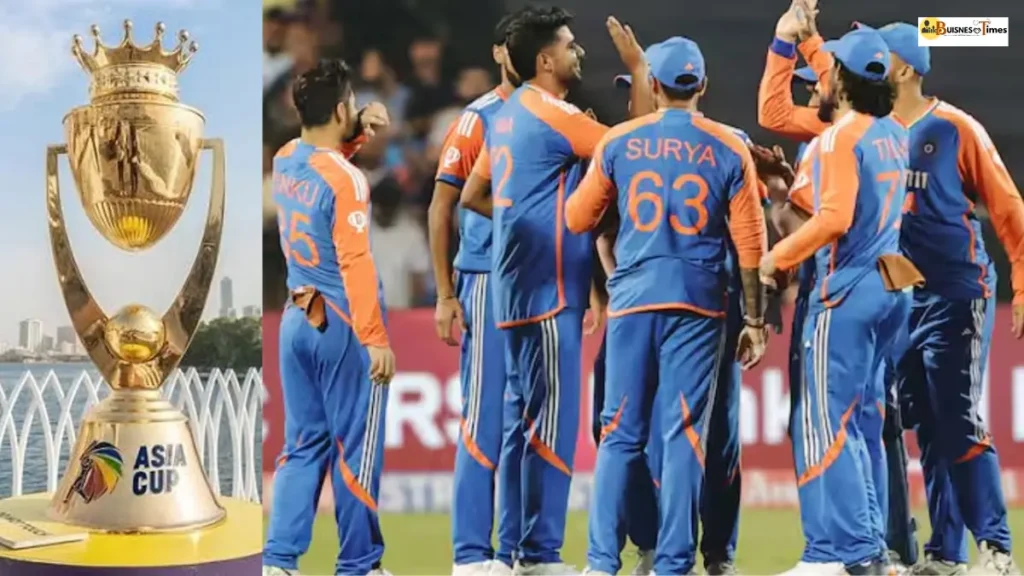The Asia Cup 2025 is just around the corner, and cricket fans across the continent are gearing up for a month of high-voltage action. Scheduled to begin on September 9, 2025, the tournament will feature top Asian teams battling it out for continental supremacy. Among the fixtures, the most talked-about clash remains India vs Pakistan on September 14 at the Dubai International Stadium — a game that is expected to attract millions of viewers worldwide.
But beyond the excitement of big matches, there’s one question that always surfaces around the Asia Cup: Why does the tournament keep switching formats between One Day Internationals (ODIs) and Twenty20 Internationals (T20Is)? To understand this, we need to dive into the history of the Asia Cup and the reasons behind its format changes.

A Brief History of the Asia Cup
The Asia Cup is a biennial tournament organized by the Asian Cricket Council (ACC), featuring the men’s national teams of India, Pakistan, Sri Lanka, Bangladesh, Afghanistan, and, in recent years, qualifiers like Hong Kong, Nepal, Oman, and the UAE.
- Inception (1984): The first Asia Cup was played in Sharjah, UAE, and India emerged as the inaugural champions.
- Traditional ODI format (1984–2014): For the first three decades, the Asia Cup was played exclusively in the 50-over ODI format. India and Sri Lanka dominated this era, each winning the trophy five times by 2014. Pakistan also made its mark with two titles.
This ODI-only tradition was followed until 2014, when structural changes in world cricket began influencing the tournament’s direction.
Why the Switch to T20 Format?
The turning point came in 2015, when the International Cricket Council (ICC) restructured the Asian Cricket Council. While the ACC retained the responsibility of organizing the Asia Cup, its powers were reduced. Soon after, the ACC announced that the tournament would alternate between ODI and T20I formats, depending on which ICC event was approaching next.
- 2016 (Bangladesh): The first-ever T20 Asia Cup was held to prepare teams for the ICC T20 World Cup in India. It was considered a success, as it gave Asian teams valuable match practice in the shortest format.
- 2018 (UAE): Back to ODIs, since the 2019 ODI World Cup was just a year away.
- 2022 (UAE): Again in T20I format, aligning with the T20 World Cup in Australia.
- 2023 (Pakistan & Sri Lanka): The tournament reverted to ODIs, acting as a dress rehearsal for the 2023 ODI World Cup in India.
Thus, the switching of formats is not random but rather a strategic decision to align the Asia Cup with the global cricket calendar. This ensures that Asian teams get the right preparation ahead of ICC tournaments.

Asia Cup 2025: What to Expect
The Asia Cup 2025 will be played in the T20I format, keeping in line with the ICC T20 World Cup 2026, which will be hosted by India and Sri Lanka.
- Start Date: September 9, 2025
- Venue: UAE, with matches in Dubai, Abu Dhabi, and Sharjah
- Opening Match: India vs UAE on September 10 in Dubai
- Blockbuster Clash: India vs Pakistan on September 14 at Dubai International Stadium
This year, India and Pakistan are grouped together in Group A along with hosts UAE and Oman. This raises the possibility of the two cricketing giants clashing multiple times during the tournament — in the group stage, Super Fours, and potentially the final.
Fans are already buzzing with excitement at the thought of three India-Pakistan encounters in a single tournament, something that doesn’t happen often given the political tensions between the two nations.
Why the Asia Cup Matters
The Asia Cup holds a special place in world cricket for several reasons:
- Preparation for ICC Events: Since its restructuring, the tournament has acted as a warm-up event for World Cups, giving teams competitive exposure.
- Regional Rivalries: Matches like India vs Pakistan or Sri Lanka vs Bangladesh often provide the same thrill and drama as World Cup games.
- Opportunities for Smaller Nations: Teams like Hong Kong, UAE, and Nepal get a rare chance to test themselves against cricketing powerhouses.
- Fan Engagement: With cricket being the most-followed sport in Asia, the tournament garners massive viewership, making it a key commercial event for broadcasters and sponsors.
How Many Times Has Each Team Won?
As of 2023, here’s the title count:
| Team | Titles Won | Last Title Won |
|---|---|---|
| India | 8 | 2023 (ODI) |
| Sri Lanka | 6 | 2022 (T20I) |
| Pakistan | 2 | 2012 (ODI) |
| Bangladesh, Afghanistan, UAE, Hong Kong | 0 | – |
India remains the most successful team, followed by Sri Lanka. Pakistan, despite being a major cricketing force, has only two Asia Cup titles to its name.
Looking Ahead: The Future of Asia Cup
The alternating format is here to stay, at least for the foreseeable future. By linking the Asia Cup with ICC events, the ACC ensures that the tournament stays relevant and serves a practical purpose beyond just continental pride.

The Asia Cup 2025 is expected to be one of the most competitive editions yet, with Asian teams increasingly closing the gap between each other in T20 cricket. Afghanistan, for instance, has become a formidable T20 side, while Bangladesh continues to produce surprises.
With India vs Pakistan potentially happening three times, the stakes couldn’t be higher. Beyond just cricketing skill, these matches will carry an emotional weight, fueling fan passion across the globe.
Final Thoughts
The Asia Cup is much more than just a regional tournament. It’s a celebration of cricket in Asia, blending tradition with modernity, and offering fans unforgettable memories every two years. While the constant switching between ODIs and T20Is may seem confusing at first, it’s a well-thought-out strategy to align with the international cricket calendar.
As the countdown begins for Asia Cup 2025, fans are not only looking forward to high-scoring thrillers and nail-biting finishes but also to historic rivalries being reignited on the big stage.
Disclaimer : This article has been written for news and informational purposes only. All details are based on publicly available information from the Asian Cricket Council (ACC) and ICC updates.

